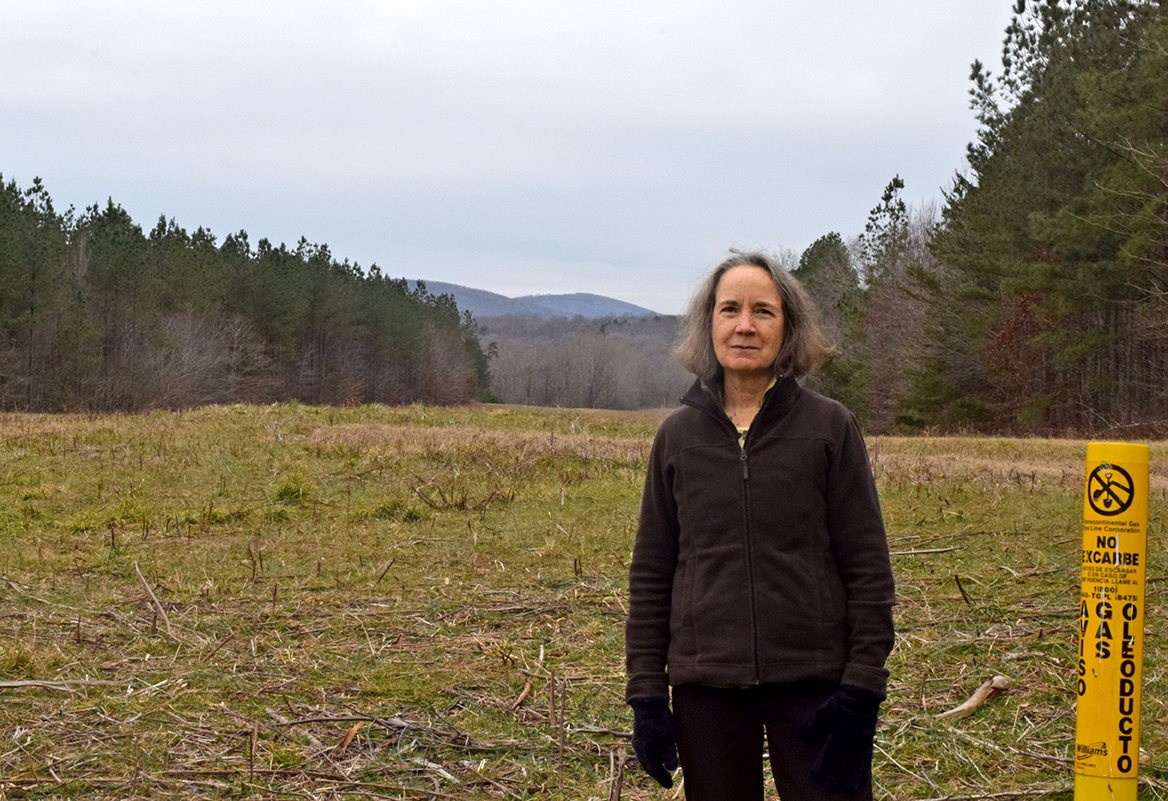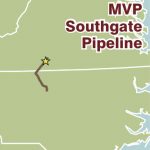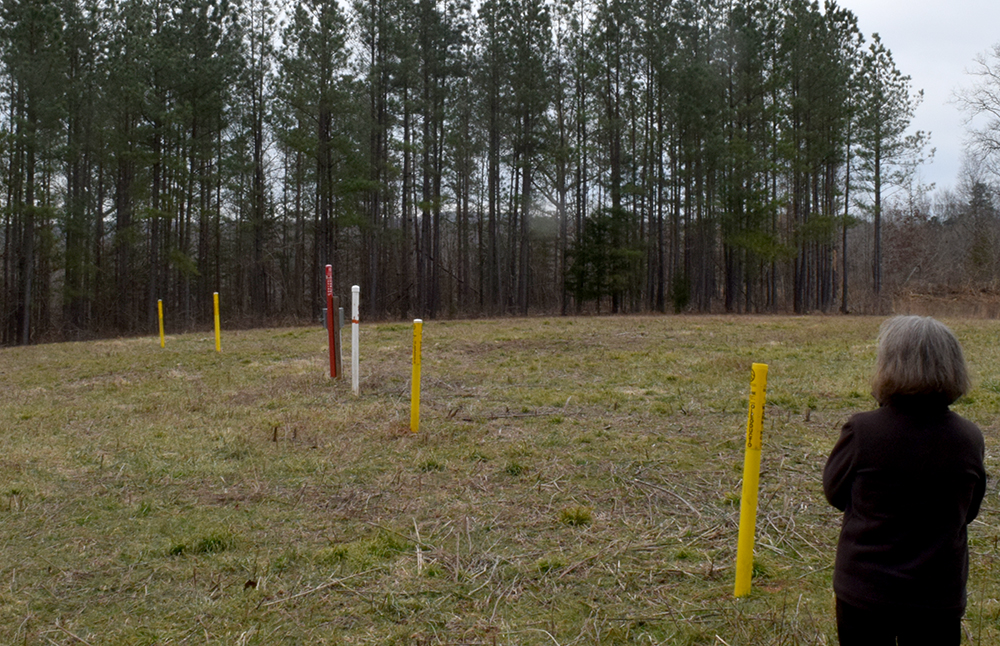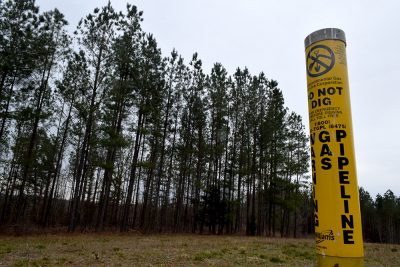Pittsylvania County, Va.
Kevin Ridder | February 13, 2019 | No Comments

Katie Whitehead next to a marker for one of the Williams Transco pipelines on her property. Photo by Kevin Ridder
“We refused and later learned that MVP had changed the mainline route,” Katie says. “We thought we’d been spared.”

Katie’s location in the path of MVP Southgate.
“We will never be fully compensated for the first gas line through our property,” she says. “Even one pipeline creates a utility corridor, which becomes the default route for more gas, electric, fiber optic and other lines.”

Katie Whitehead looks on at the four Williams Transco pipelines already buried on her property. Photo by Kevin Ridder
Katie says that the agent “assured us that once construction was complete and grass was growing, we wouldn’t even notice the right of way – an absurd statement. Our land is a tree farm.”
“We can reasonably ask how much of a burden a small group of landowners should bear for the public good,” Katie says. “Are four pipelines enough?”
She states that her family’s interactions with Southgate representatives have become “increasingly unpleasant.” When one called to discuss an easement in November 2018, they asked the agent to mail the easement for review.

If Southgate’s proposed route is approved, many of these trees next to one of Williams’ four Transco pipelines on Katie’s property could be cut down. Photo by Kevin Ridder
Katie states that the Federal Energy Regulatory Commission’s approval of the Mountain Valley and Atlantic Coast pipelines have made her “painfully aware that FERC does not adequately perform due diligence to establish ‘public need and convenience’ for pipelines.”
She adds, “Now it appears we are being asked to sacrifice for an unnecessary gas line so that a corporation can profit.” — By Kevin Ridder
More Stories from People in the Path of Pipelines
Like this content? Subscribe to The Voice email digests